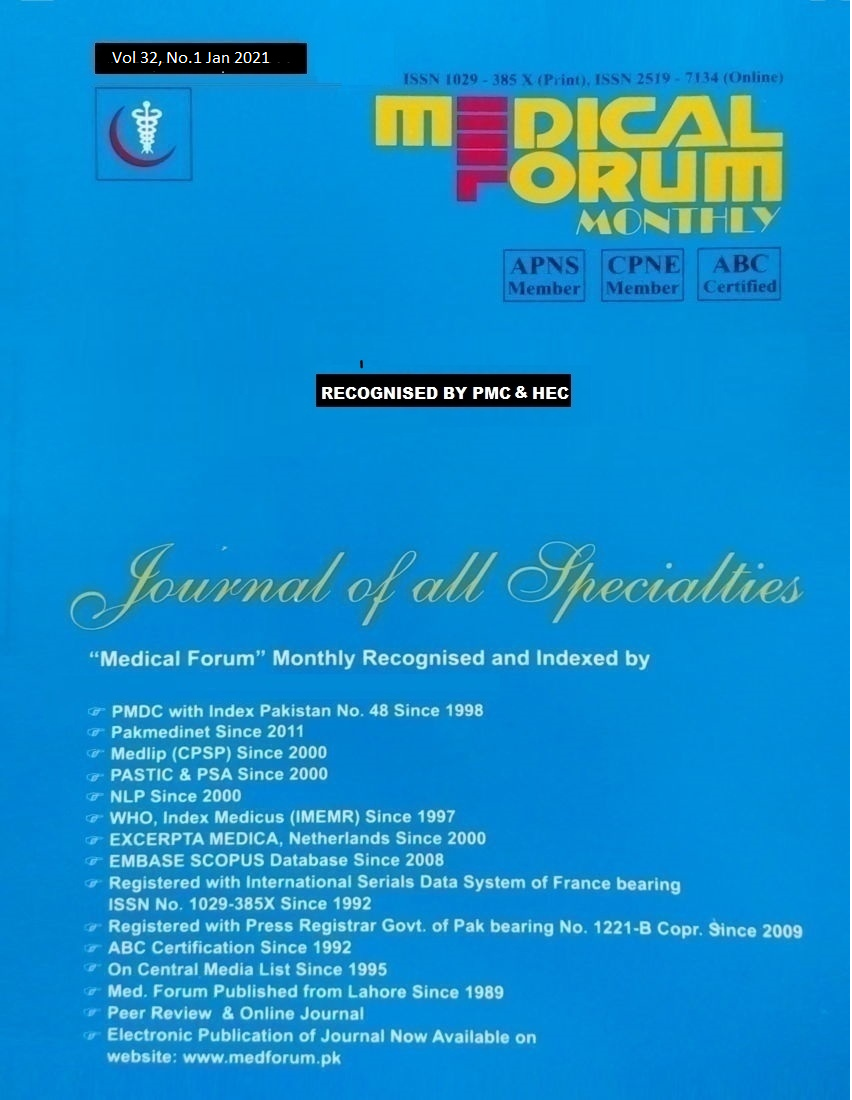
11. Severe Umbilical Arterial Blood Metabolic Acidosis; A Predictor of Neonatal Encephalopathy
Syed Zulfiqar Haider1, Lubna Akhtar1, Mulazim Hussain1, Sayed Ibrar Hussain1, Nadeem Ahmed2 and Syed Mohammad Aleem Haider1
ABSTRACT
Objective: To determine the relationship of Severe Umbilical Arterial Blood Metabolic Acidosis to Neonatal Encephalopathy.
Study Design: Descriptive cross sectional study
Place and Duration of Study: This study was conducted at the Department of Pediatrics, Fauji Foundation Hospital, Rawalpindi, over a period of 6 months from April, 2019 to Oct, 2019.
Materials and Methods: Umbilical arterial blood (UAB), samples were collected from all full term, singleton babies of both sexes, delivered by all delivery types, soon after birth. Non-probability consecutive sampling technique was used. Arterial blood gas analysis of these samples was done within half an hour, and babies with severe acidosis in UAB i.e. pH less than 7.0, were separated and included in this study. These neonates were observed for the development of signs of neonatal encephalopathy (NE). A comparison of acid base parameters, including pH, HCO3, and base deficit of these samples was made in neonates who developed NE versus those who did not. A relationship between these parameters and development of NE was established.
Results: It was found that 28.9% (24/83) of neonates with severe metabolic acidosis developed signs of NE within two days of birth. The mean pH and HCO3 were significantly low and BE was significantly high in these neonates; p =0.000.
Conclusion: Severe metabolic acidosis detected in umbilical arterial blood in a new born is an indicator of impending neonatal encephalopathy.
Key Words: Neonatal encephalopathy, umbilical arterial blood, metabolic acidosis.
Citation of article: Severe Umbilical Arterial Blood Metabolic Acidosis; A Predictor of Neonatal Encephalopathy. Med Forum 2021;32(1):44-47.
